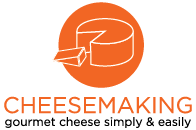Dosage and pack size
- Large size (20UA in foil sachet) will inoculate 600 to 2,000 litres of milk depending on dosage used
- Small size (5UA screw cap bottle which is 1/4 of a large pack) will inoculate 150 to 400 litres of milk depending on dosage used
- An approximate guide for usage is 1 Dash mini spoon or 1/8th spoon to 8 litres of milk
Types of Cheese MTR can be used on
Traditional Cheddar, Farmhouse Cheddar, Stirred Curd Cheddar, English acid styles, UK territorial styles, Colby, Brick, Jack, Farmers, Cottage cheese, white cheese, Continental cheese, milled curd, washed curd styles
Description
MTR is a mix of the following strains of mesophilic and thermophilic cultures:
- Lactococcus lactis subsp. Lactis
- Streptococcus thermophilus
MTR is a modern blend of mesophile and thermophile starter cultures (approximate ratio 80:20 mesophile: thermophile). MTR is an updated version of the previous mesophilic Cheddar starter cultures such as M265. The same mesophiles are still in MTR but Streptococcus thermophilus (Thermophile) has been added. When the curds and whey temperature reaches between 38°C – 42°C for these recipes (the mesophile cultures become dormant and do not produce acid, it is to hot for them, they do not die out until approximately 45°C is reached. But 38°C is an ideal temperature for acid production Streptococcus thermophilus. In some cooked curd cheese, the cook step can be at 38°C – 42°C for two hours. The higher temperature cook step is also important for moisture expulsion from the curd, but that is a lot of time to not have a culture producing acid. As the curds become cooler at the Cheddaring, pressing and hopping stages, the mesophilic starters in the MTR come back to life to produce more acid. It is a great combination of starter cultures where higher temperatures are involved.
You may want to consider adding LH1 (Lactobacillus helveticus) to the milk for these styles of cheese. It will increase the flavour profile of your cheese and decrease bitterness.
- Flavour profile: 4 out 5
- Acid production: 5 out 5
- Resistance to bacteriophage: 5 out 5

